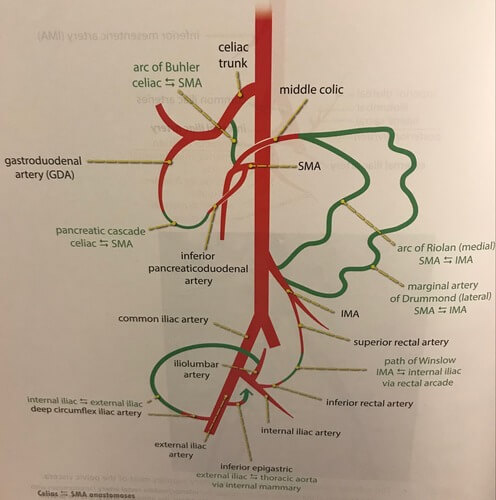Celiac trunk (T12) Mnemonic: LHS (Left Hand Side) Supplies Foregut (Upto opening of bile duct in 2nd part of duodenum) 1. Left gastric artery 2. Hepatic artery (common) 3. Splenic artery Superior Mesenteric Artery (L1) Mnemonic: IMRIS Supplies Midgut (Upto proximal 2/3 of transverse colon) 1. Inferior pancreaticoduodenal artery 2….
Category: PGMEE, MRCS, USMLE, MBBS, MD/MS
Medical knowledge in bullet points with understandable language, simplified images and graspable mnemonics.
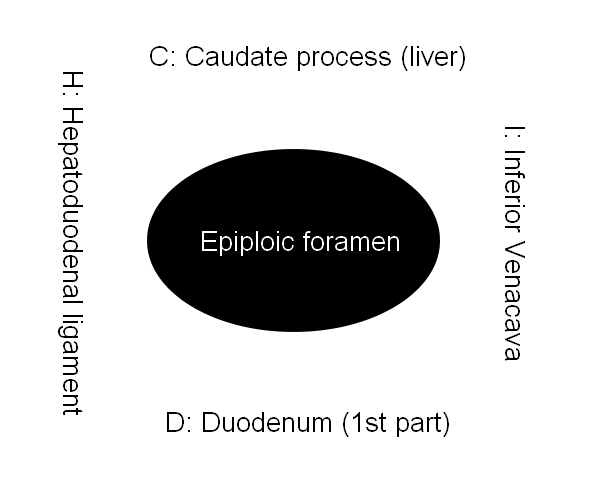
Epiploic foramen of Winslow : Mnemonic
Epiploic foramen is a vertical opening through which lesser sac (omental bursa) communicates with the greater sac (peritoneal cavity proper). It is at the level of T12 vertebra. Boundaries Mnemonic: Epiploic foramen is located between CD and HI. Superior: Caudate process of liver Inferior: Duodenum (1st part) Anterior: Hepatoduodenal ligament…
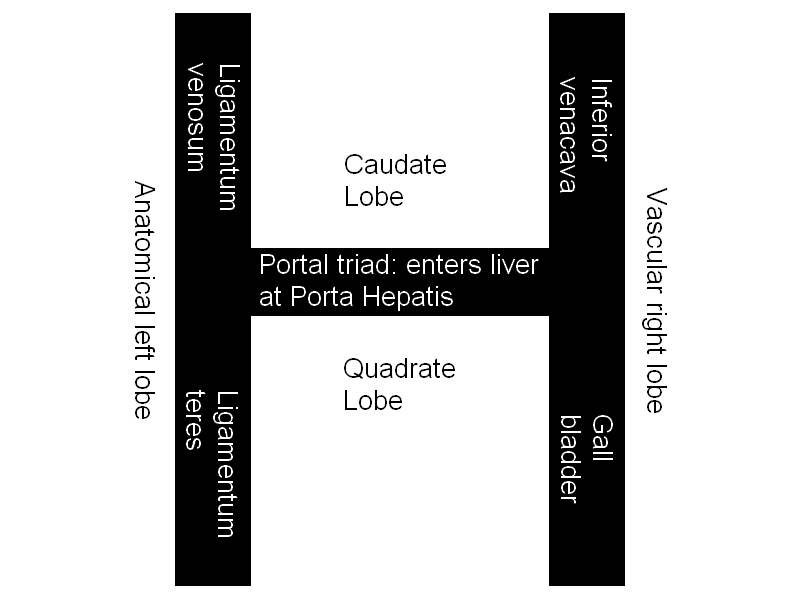
Liver Anatomy : Mnemonics
Ligaments Mnemonic: TV TFCL 1. True ligaments: 2. False ligaments (Peritoneal folds): Posteroinferior (Visceral) Surface of Liver Anatomical halves are separated by Ligamentum venosum and Ligamentum teres. Vascular halves are separated by IVC and Gall bladder. Caudate lobe and Quadrate lobe: Mnemonic: IVC are in one line Mnemonic: LGBTQ are…
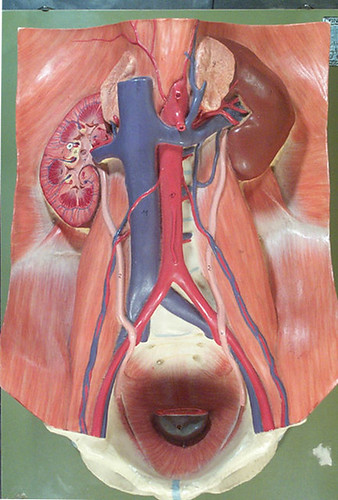
Inferior Venacava (IVC) Tributaries and Abdominal Aorta Branches : Mnemonic
Inferior Venacava (IVC) Tributaries Mnemonic: I Like To Rise So Incredibly High 1. common Iliac veins (L5) – Origin or Formation 2. Lumbar veins (L1-L5) 3. Testicular/gonadal veins – right (L2) 4. Renal veins (L1) 5. Suprarenal veins – right (L1) 6. Inferior phrenic veins (T8) 7. Hepatic veins (T8)…
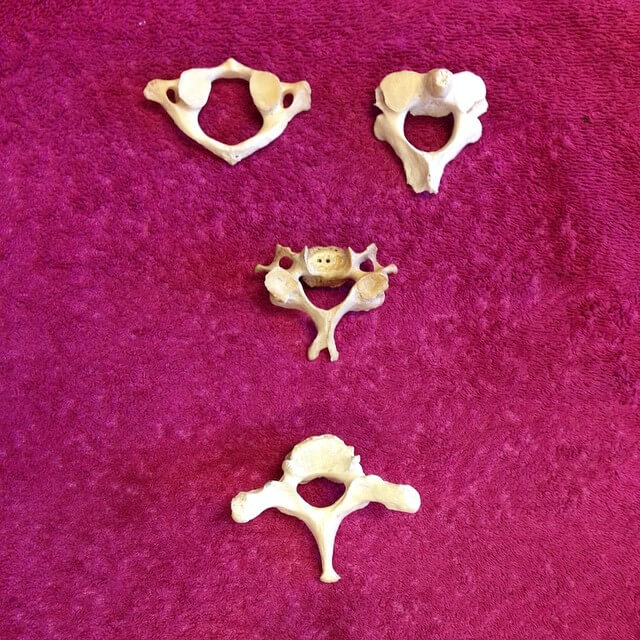
Cervical Vertebrae Anatomy
Osteology Vertebra Body Spinous process Transverse process Typical (C3-6) Relatively small; oval; uncinate process superiorly Bifid Has foramen transversarium, Has anterior and posterior tubercle separated by groove for spinal nerve (large anterior tubercle in C6 called Carotid/Chassaignac tubercle) Atlas (C1) None; Ring (2 lateral masses connected by anterior & posterior…
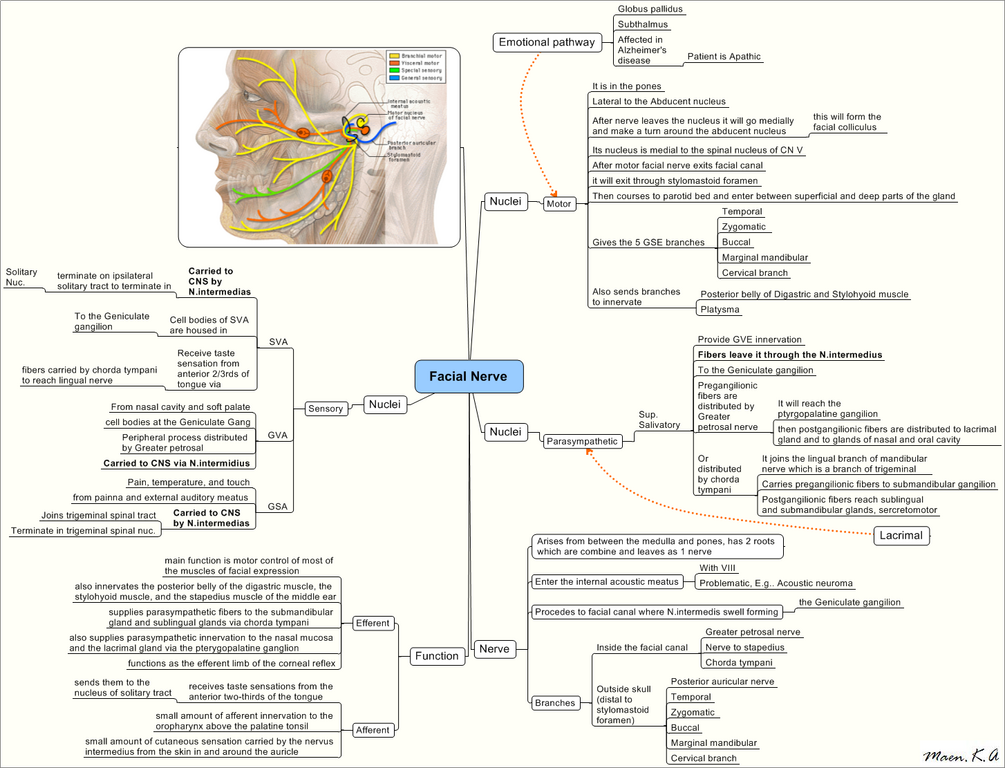
Facial Nerve : Mnemonics
Course Origin: Ponto-medullary junction (Nucleus solitarius, Facial nucleus and Superior salivatory nucleus) Internal acoustic meatus: 7 up, Coke down Facial canal: After exiting skull from stylomastoid foramen: Further reading: Facial nerve lesions 1. Supranuclear lesion: Contralateral lower 1/2 face paralyzed; forehead wrinkling spared (Bilateral cortical innervation) 2. Infranuclear lesion: Entire…

Anatomy of Tongue : Mnemonics
Muscles Intrinsic Extrinsic Alter the shape of tongue Attaches tongue to the bone Mnemonic: VIST Mnemonic: Paris St. German Hour 1. Vertical 1. Palatoglossus (Palate) – anatomically a pharyngeal muscle 2. Inferior longitudinal 2. Styloglossus (Styloid) 3. Superior longitudinal 3. Genioglossus (Genial tubercle of mandible) 4. Transverse 4. Hyoglossus (Hyoid)…
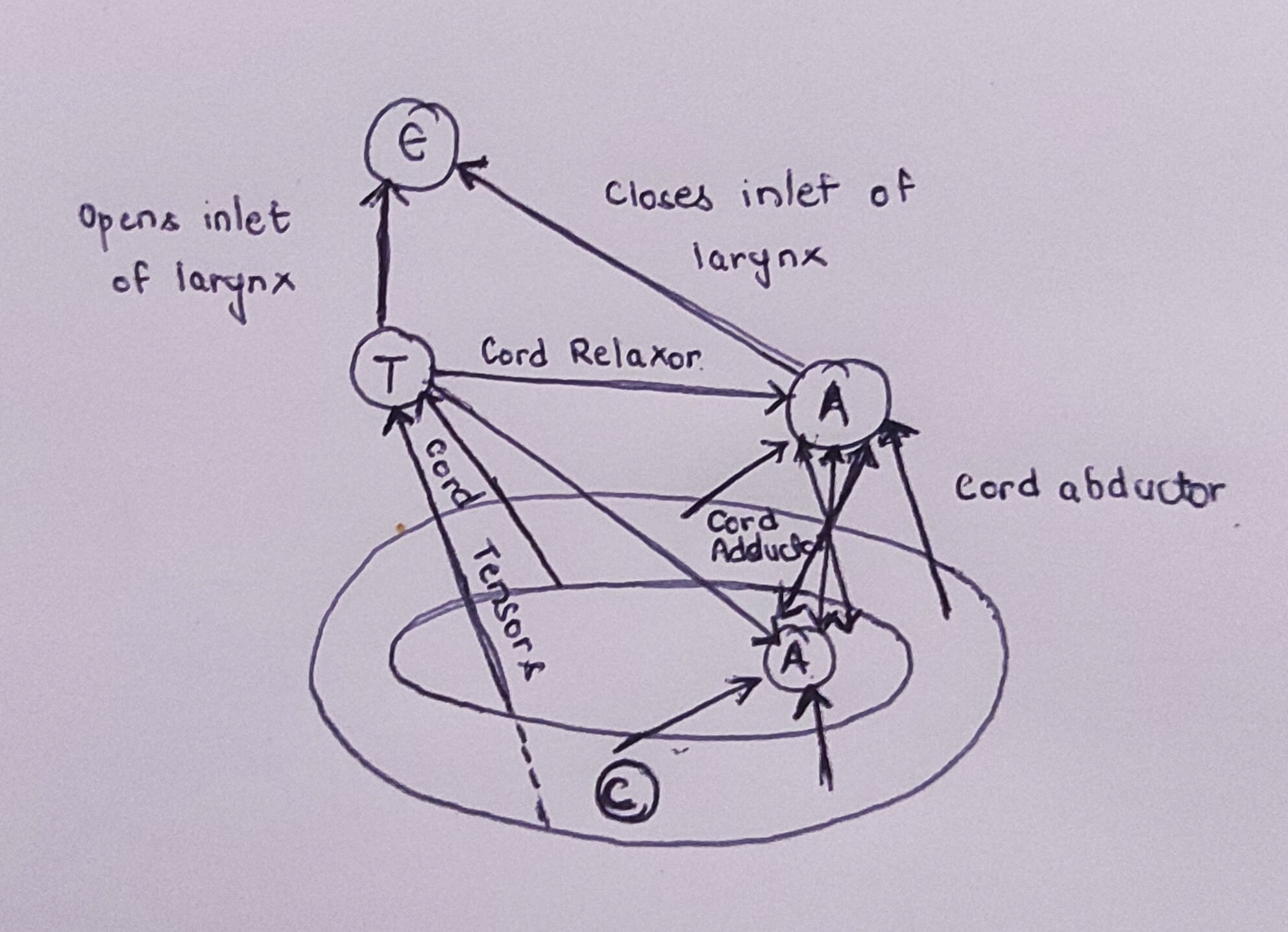
Laryngeal Muscles : Mnemonics
Extrinsic muscles Nerve supply: Ansa cervicalis (CN XII + C1, C2, C3) Infrahyoid muscles (Depressors of larynx): Mnemonic: TOSS Suprahyoid muscles (Elevators of larynx): Mnemonic: MDGS Intrinsic muscles Muscles Origin Insertion Function Thyroepiglotticus Thyroaryetenoid muscle Epiglottis (lateral surface) Opens laryngeal inlet Aryepiglotticus Oblique arytenoid muscle Epiglottis Closes laryngeal inlet Posterior…
